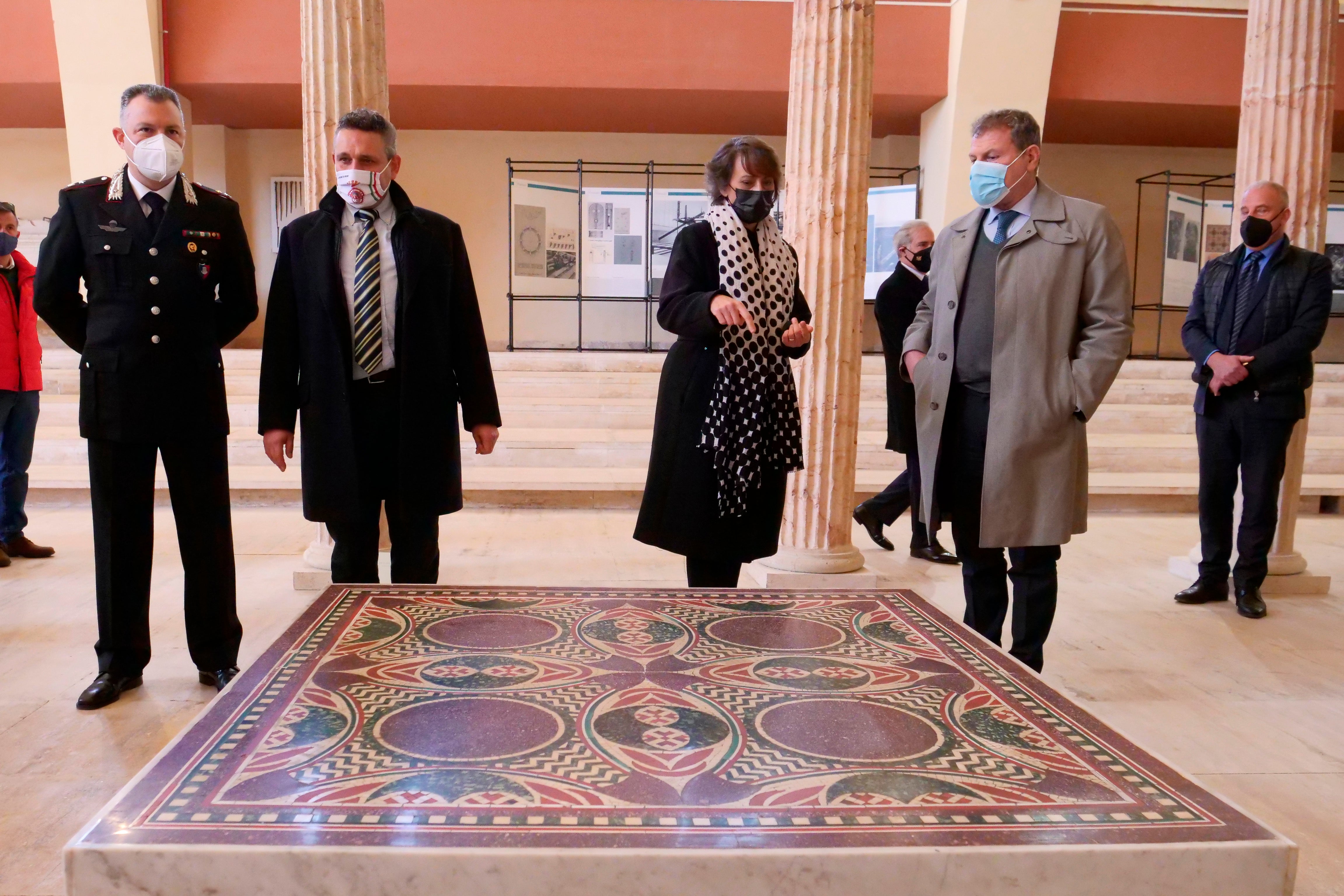Emperor's mosaic displayed in Italy after stint as NYC table
A looted mosaic that once decorated a ship of the Roman Emperor Caligula and ended up as a coffee table in New York City has finally returned home

A looted mosaic that once decorated a ship of the Roman Emperor Caligula and ended up as a coffee table in New York City finally returned home Thursday, as details emerged about the lucky break in the investigation that got it there.
Officials unveiled the mosaic at the Museum of Roman Ships, which was built in the 1930s specifically to house the treasures of two huge ceremonial ships Caligula commissioned in around AD 40. The ships eventually sank and were excavated from the depths of Lake Nemi, in the Alban hills south of Rome starting in the late 1890s.
The mosaic, a 1.5 square-meter geometric print in rich green, reddish-purple and white stone, was part of an inlaid floor on one of the ships, which were designed and decorated essentially as floating palazzi in a testament to Caligula’s greatness.
It’s unclear when the mosaic passed into private hands or under what circumstances. But eventually it was purchased by a New York antiquities dealer and her Italian journalist husband, who shipped it back to New York and made a coffee table out of it for their Park Avenue apartment.
And there it sat, relatively undisturbed, until Oct. 23, 2013. That night, at the Bulgari jewelry store on Manhattan’s 5th Avenue, rare stones expert Dario Del Bufalo was giving a lecture and book signing for his new book “Porphyry,” on the rare decorated reddish-purple stone preferred by the Roman emperors, that was attended by New York's cultural elite.
As he was signing books, Del Bufalo said he overheard two women who were leafing through his book exclaim “This is Helen’s mosaic! This is Helen’s mosaic!‘” after seeing a photograph of the work.
“I didn’t understand,” Del Bufalo said Thursday as the mosaic was put on display at the Nemi museum. “There were a lot of art experts and I asked ‘Who is Helen?’ And they told me she is a woman who has a house on Park Avenue and this same mosaic.”
Helen was Helen Fioratti, the antiquities dealer, and soon she would be caught up in the investigation by the New York District Attorney’s office, the Italian culture ministry and carabinieri art squad, all of which were hunting down antiquities that had been looted from Italy and ended up in private collections and top U.S. museums.
The District Attorney’s office in October 2017 announced it had seized the mosaic and turned it back over to Italian consular authorities, who repatriated it to Italy. It has been on temporary exhibition since then in Italy but on Thursday was returned to the Nemi museum, with the other artifacts from Caligula’s ships.
Fioratti told The Associated Press at the time that she had bought it in good faith while she was living in Italy and had been told it belonged to the aristocratic Barberini family. She was never prosecuted, and decided not to contest the seizure because she believed it would cost too much and take too long.
___
Winfield contributed from Rome.
Bookmark popover
Removed from bookmarks